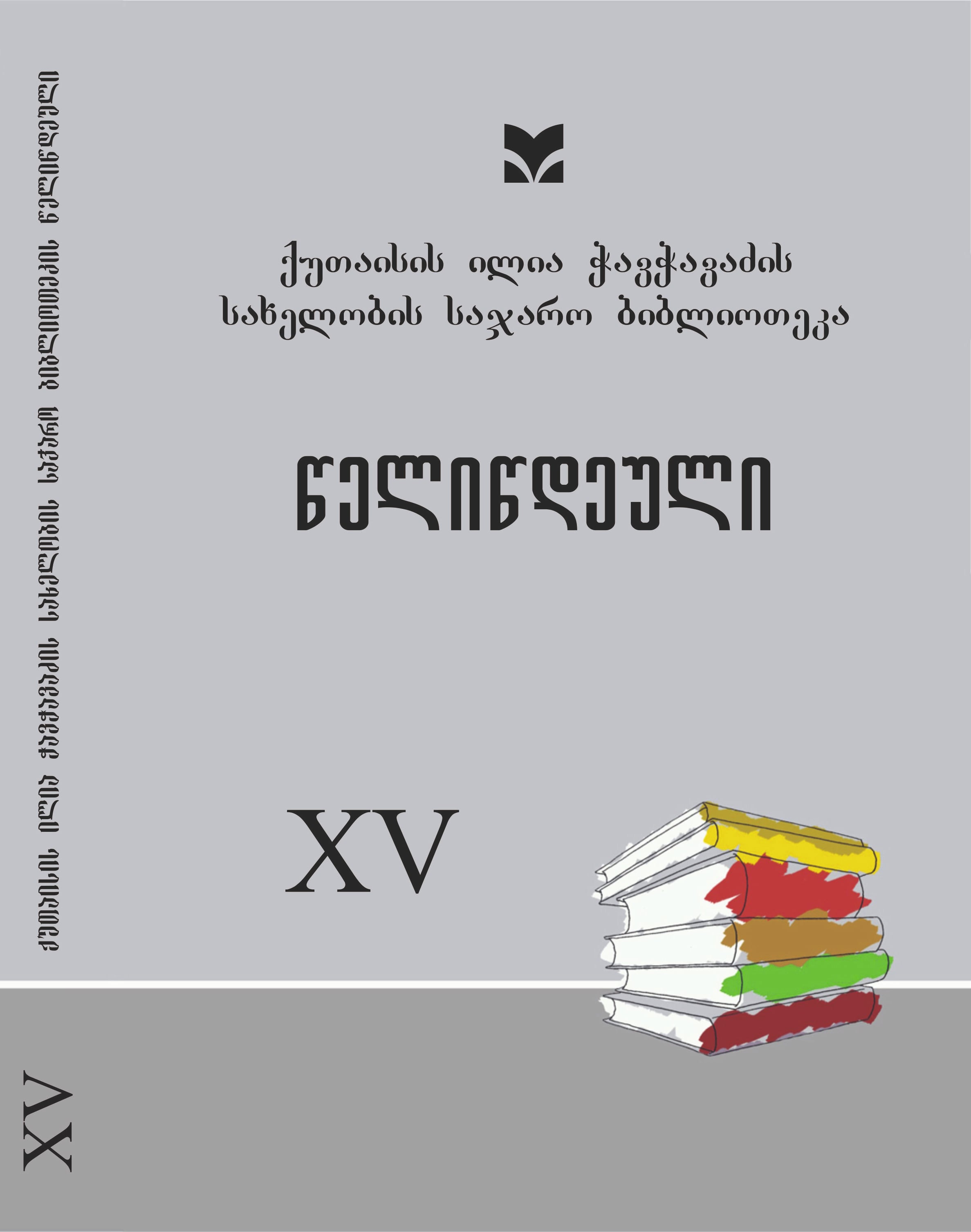Georgian reality and gender issue on the example of Imereti (According to „Irine’s happiness“ by Davit Kldiashvili)
DOI:
https://doi.org/10.61491/yk.15.2023.8070Keywords:
Creativity of Davit Kldiashvili, gender issues, play „Irine’s Happiness“Abstract
Davit Kldiashvili, a prominent figure in Georgian literature, addresses significant social and gender issues in his works, particularly highlighted in his play „Irine’s Happiness“. This play delves into the complexities of gender roles and societal expectations prevalent in Imereti, Georgia, during the late 19th and early 20th centuries.
Kldiashvili’s ability to generalize local issues to broader societal contexts is noteworthy. Through „Irine’s Happiness“, he portrays the struggles faced by women due to cultural and social stereotypes. The play critiques the paternalistic attitudes of parents who decide their daughters’ futures without considering their personal freedom or desires. This theme resonates powerfully today, amidst ongoing discussions on gender equality and women’s autonomy.
In the context of contemporary gender studies, Kldiashvili’s work gains recognition for its insightful portrayal of how gender norms restrict and oppress women. „Irine’s Happiness“ serves as a poignant reminder of the enduring relevance of these issues across different cultures and historical periods.
Moreover, the play’s enduring popularity in Georgian theater underscores its continued relevance. Directors and audiences alike are drawn to its exploration of gender dynamics and the societal pressures that shape women’s lives. This ongoing interest reflects a broader recognition of Kldiashvili’s contribution to world literature, as his works transcend local specificity to address universal themes.
Thus, Davit Kldiashvili emerges not only as a significant literary figure in Georgian history but also as a prescient commentator on gender issues whose insights continue to resonate in contemporary discourse. His portrayal of Irine’s fate remains a compelling testament to the struggles against gender stereotypes and the quest for individual autonomy and happiness.




